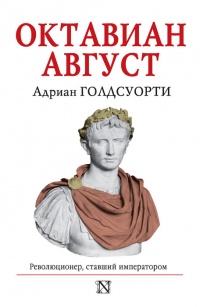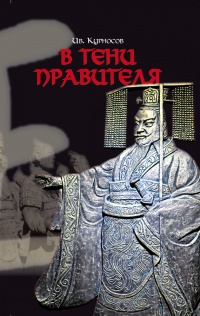Читать книгу - "Октавиан Август. Революционер, ставший императором - Адриан Голдсуорси"
Аннотация к книге "Октавиан Август. Революционер, ставший императором - Адриан Голдсуорси", которую можно читать онлайн бесплатно без регистрации
Gabba, E., ‘The Perusine War and Triumviral Italy’, Harvard Studies in Classical Philology 75 (1971), p. 139–160
Gabba, E. (trans. P. Cuff), The Roman Republic, the Army and the Allies (1976)
Galinsky, K., Augustan Culture (1996)
Galinsky, K. (ed.), The Cambridge Companion to the Age of Augustus (2005)
Galinsky, K., Augustus. Introduction to the Life of an Emperor (2012)
Gardner, J., ‘The Dictator’, in Griffin (2009), p. 57–71
Garnsey, P., Famine and Food Supply in the Graeco-Roman World. Responses to Risk and Crisis (1988)
Gelzer, M. (trans. P. Needham), Caesar. Politician and Statesman (1968)
Goldsworthy, A., The Roman Army at War 100 BC—AD 200 (1996)
Goldsworthy, A., ‘ ‘‘Instinctive genius”: the depiction of Caesar the general’, in Welch & Powell (1998), p. 193–219
Goldsworthy, A., In the Name of Rome (2004)
Goldsworthy, A., The Complete Roman Army (2004)
Goldsworthy, A., Caesar: The Life of a Colossus (2006)
Goldsworthy, A., Antony and Cleopatra (2010)
Goudineau, C., Cesar et la Gaule (1995)
Gowers, E., ‘Augustus and “Syracuse”’, JRS 100 (2010), p. 69–87
Grant, M., Cleopatra (1972)
Green, P., Alexander to Actium: The Historical Evolution of the Hellenistic Age (1990)
Greenhalgh, P., Pompey: The Roman Alexander (1980)
Griffin, J., ‘Augustus and the poets: “Caesar qui cogere posset”’, in Millar & Segal (1990), p. 189–218
Griffin, M., ‘The Elder Seneca and Spain’, JRS 62 (1972), p. 1–19
Griffin, M. (ed.), A Companion to Julius Caesar (2009)
Grimal, P. (trans. A. Train), Love in Ancient Rome (1986)
Gruen, E., The Last Generation of the Roman Republic (1974)
Gruen, E., ‘Cleopatra in Rome. Fact and Fantasies’, in D. Braund & C. Gill (eds), Myths, History and Culture in Republican Rome: Studies in Honour of T. P. Wiseman (2003), p. 257–274
Gruen, E., ‘Caesar as a politician’, in Griffin (2009), p. 23–36
Gwynn, A., Roman Education (1926)
Hallett, J., ‘Perusinae Glandes and the Changing Image of Augustus’, American Journal of Ancient History 2 (1977), p. 151–171
Harmand, J., L’armée et le soldat а Rome de 107 à 50 avant nôtre ère (Paris, 1967)
Harrington, D., ‘The Battle of Actium – a Study in Historiography’, Ancient World 9. 1–2 (1984), p. 59–64
Hölbl, G. (trans. T. Saavedra), A History of the Ptolemaic Empire (2001)
Holder, P., The Auxilia from Augustus to Trajan (1980)
Holland, R., Augustus. Godfather of Europe (2004)
Huzar, E., ‘Mark Antony: Marriages vs. careers’, The Classical Journal 81 (1985/6), p. 97–111
James, S., Rome and the Sword. How Warriors and Weapons Shaped Roman History (2011)
Johnson, J., ‘The Authenticity and Validity of Antony’s will’, L’ Antiquité Classique 47 (1978), p. 494–503
Jones, A., ‘The Imperium of Augustus’, JRS 41 (1951), p. 112–19
Jones, A., ‘The elections under Augustus’, JRS 45 (1955), p. 9–21
Jones, R., ‘The Roman Military Occupation of North-West Spain’, JRS 66 (1976), p. 45–66
Kennedy, D. (ed.), The Roman Army in the East. Journal of Roman Archaeology Supplements 18 (1996)
Kennedy, D., ‘Parthia and Rome: eastern perspectives’, in Kennedy
(1996), p. 67–90
Keppie, L., Colonisation and Veteran Settlement in Italy: 47–14 BC (1983)
Keppie, L., The Making of the Roman Army (1984)
Keppie, L., ‘A centurion of legio Martia at Padova?’, Journal of Roman Military Equipment Studies 2 (1991), p. 115–21 = L. Keppie, Legions and Veterans: Roman Army Papers 1971–2000 (2000), p. 68–74
King, D., The Elgin Marbles (2006)
Kos, M., Appian and Illyricum (2005)
Lacey, W., ‘Summi Fastigii Vocabulum: The story of a title’, JRS 69 (1979), p. 28–34
Lacey, W., Augustus and the Principate. The Evolution of the System (1996)
Lange, C., Res Publica Constituta. Actium, Apollo and the Accomplishment of the Triumviral Assignment (2009)
Lange, C., ‘The Battle of Actium: A Reconsideration’, Classical Quarterly 61. 2 (2011), p. 608–623
Last, H., ‘Imperium Maius: A note’, JRS 37 (1947), p. 157–164
Le Bohec, Y., The Imperial Roman Army (1994)
Leon, E., ‘Scribonia and her daughters’, Transactions and Proceedings of the American Philological Association 82 (1951), p. 168–275
Levick, B., ‘Abdication and Agrippa Postumus’, Historia 21 (1972), p. 674–697
Levick, B., ‘Julians and Claudians’, Greece and Rome 22 (1975), p. 29–38
Levick, B., Tiberius the Politician (1999)
Levick, B., Augustus. Image and Substance (2010)
Lewis, N. Reinhold, M. (eds), Roman Civilization. Selected Readings Vol. 1: The Republic and the Augustan Age (3rd edn, 1990)
Liebeschuetz, J., ‘The settlement of 27 bc’, in C. Deroux, Studies in Latin Literature and Roman History (2008), p. 345–365
Linderski, J., ‘Aphrodisias and the Res Gestae: The Genera Militiae and the Status of Octavian’, JRS 74 (1984), p. 74–80
Lintott, A., ‘Electoral bribery in the Roman Republic’, JRS 80 (1990), p. 1–16
Lintott, A., The Constitution of the Roman Republic (1999)
Lintott, A., Cicero as Evidence (2008)
Lintott, A., ‘The assassination’, in Griffin (2009), p. 72–82
Lo Cascio, E., ‘The Size of the Roman Population: Beloch and the Meaning of the Augustan Census Figures’, JRS 84 (1994), p. 23–40
Lowe, B., Roman Iberia. Economy, Society and Culture (2009)
Luce, T., ‘Livy, Augustus, and the Forum Augustum’, in Edmondson (2009), p. 399–415
MacMullen, R., Enemies of the Roman Order. Treason, Unrest and Alienation in the Empire (1967)
MacMullen, R., Romanization in the Time of Augustus (2000)
Прочитали книгу? Предлагаем вам поделится своим впечатлением! Ваш отзыв будет полезен читателям, которые еще только собираются познакомиться с произведением.
Оставить комментарий
-
 Илья12 январь 15:30
Книга прекрасная особенно потому что Ее дали в полном виде а не в отрывке
Горький пепел - Ирина Котова
Илья12 январь 15:30
Книга прекрасная особенно потому что Ее дали в полном виде а не в отрывке
Горький пепел - Ирина Котова
-
 Гость Алексей04 январь 19:45
По фрагменту нечего комментировать.
Бригадный генерал. Плацдарм для одиночки - Макс Глебов
Гость Алексей04 январь 19:45
По фрагменту нечего комментировать.
Бригадный генерал. Плацдарм для одиночки - Макс Глебов
-
 Гость галина01 январь 18:22
Очень интересная книга. Читаю с удовольствием, не отрываясь. Спасибо! А где продолжение? Интересно же знать, а что дальше?
Чужой мир 3. Игры с хищниками - Альбер Торш
Гость галина01 январь 18:22
Очень интересная книга. Читаю с удовольствием, не отрываясь. Спасибо! А где продолжение? Интересно же знать, а что дальше?
Чужой мир 3. Игры с хищниками - Альбер Торш
-
 Олена кам22 декабрь 06:54
Слушаю по порядку эту серию книг про Дашу Васильеву. Мне очень нравится. Но вот уже третий день захожу, нажимаю на треугольник и ничего не происходит. Не включается
Донцова Дарья - Дантисты тоже плачут
Олена кам22 декабрь 06:54
Слушаю по порядку эту серию книг про Дашу Васильеву. Мне очень нравится. Но вот уже третий день захожу, нажимаю на треугольник и ничего не происходит. Не включается
Донцова Дарья - Дантисты тоже плачут





